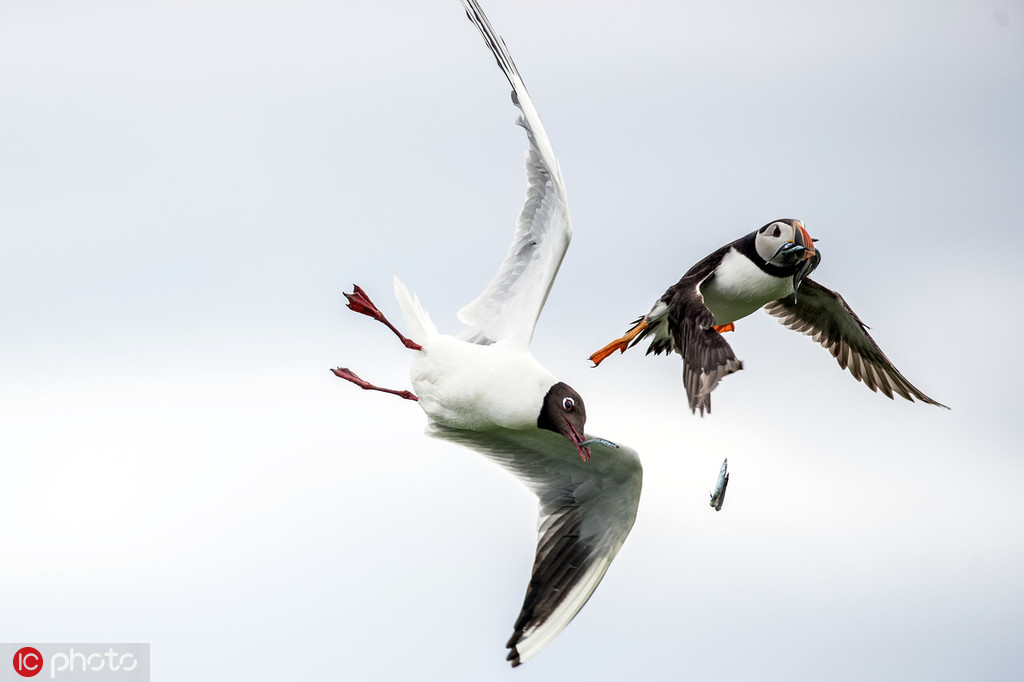Rat removal boosts seabird numbers on UK island
By Jonathan Powell in London | China Daily Global | Updated: 2019-05-29 00:36

The seabird population on a small British island off the coast Devon and South Wales has soared following the eradication of rats.
There has been a boost in the numbers of Manx shearwater, puffins and guillemots on Lundy Island 15 years after a conservation project to remove its rats ended.
The Royal Society for the Protection of Birds, known as the RSPB, said the number of seabirds on the island, which has a total area of only 4.45 square kilometers, had tripled to 21,000.
The project was launched in 2003 by Natural England, the Landmark Trust, the National Trust and RSPB, and aimed to eradicate the rats because they posed the biggest threat to the survival of the birds.
A cull costing 50,000 pounds ($63,000) was used to get rid of 40,000 rats on the island when puffin numbers fell to fewer than 10 pairs at the turn of the millennium.
Helen Booker, senior conservation officer for RSPB in south-west England, said the organisation is delighted with the results.
"This study clearly shows how quickly and positively seabirds respond to the removal of non-native predators," she said. "Of course, we had anticipated major population increases when the project was launched, but the scale of this recovery has far exceeded our expectations."
Dean Jones, the warden on Lundy, which is managed by the Landmark Trust, said the recovery of the seabirds was a positive, but that it is important to remain cautious.
"It is exciting to see this level of recovery in Manx shearwaters, one of our most important seabirds. In spring the island comes alive at night with the sound of these amazing birds. The increases in puffins, guillemots and razorbills is also very encouraging for the future of seabirds on Lundy and we are maintaining our vigilance to ensure rats cannot return to the island."
A recent study found that nearly 10 percent of the world's bird, mammal, amphibian and reptile species currently on the brink of extinction could be saved by culling invasive mammals such as cats and rats on 169 islands.
On British islands, rat eradication programs have been successfully completed on the Shiants in the Hebrides and on St Agnes and Gugh in the Isles of Scilly, with seabird populations subsequently bouncing back.
But rat eradication programs have been controversial with some animal rights activists, who have argued that the black rat, although not native to Britain, is one of the country's most endangered mammals.
























